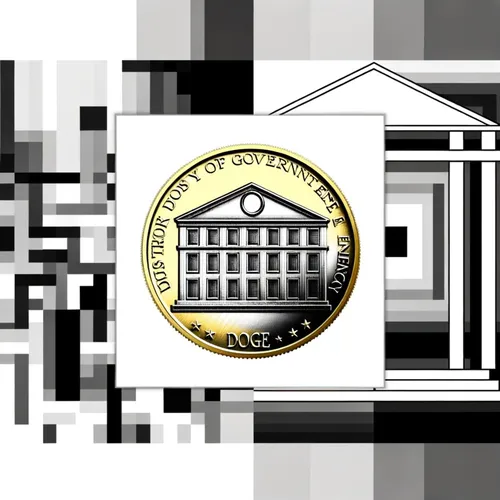Blockchain Revolution: Elon Musks DOGE Aims to Transform US Government Efficiency and Transparency
- Author
- Quiet. Please
- Published
- Sat 12 Apr 2025
- Episode Link
- https://www.spreaker.com/episode/blockchain-revolution-elon-musks-doge-aims-to-transform-us-government-efficiency-and-transparency--65551013
Elon Musk’s Department of Government Efficiency (DOGE) continues to spark debates about unleashing blockchain technology as a tool to revolutionize bureaucracy in the United States. With President Trump’s administration pushing a pro-cryptocurrency stance, including the creation of a Strategic Bitcoin Reserve, Musk’s aim to track federal spending using blockchain could represent a pivotal shift in government operations. Notably, Musk has proposed utilizing blockchain to secure federal data, manage expenditures, and enhance transparency in public spending. While there’s no certainty around which blockchain might be chosen or whether it will be implemented at all, this exploration signals a significant step toward modernizing government systems.
Blockchain-based technologies, like those offered by platforms such as Stellar and Bitcoin SV, bring transformative potential. Stellar, for example, has already proven its effectiveness in global financial disbursements, reducing costs and increasing transparency in humanitarian aid projects. Adopting such transparent, efficient systems could dramatically cut waste and bureaucratic delays in government functions. Similarly, Bitcoin SV offers scalability and minuscule transaction fees, making it a contender for applications in cost-efficient governance.
Digital transformations in government are not entirely new. Examples like digitized tax systems in Estonia have demonstrated how automation and digital tools can simplify processes and reduce human error. Embracing blockchain takes these efforts a step further—offering immutable records, real-time audits, and the elimination of redundant intermediaries. The result? Faster service delivery, reduced operational costs, and enhanced public trust in government.
Critics, however, warn of hurdles such as the steep learning curve associated with regulating blockchain technologies and resistance from traditional institutions. Yet, the Trump administration’s relaxed regulatory stance on cryptocurrencies could pave the way for broader adoption. By designating memecoins and other digital tokens outside the scope of SEC oversight, the administration signals its intent to foster innovation in the blockchain space.
DOGE’s ambitions to apply blockchain as a nucleus for fiscal accountability could reshape the landscape of public administration. While skepticism remains about implementation challenges, the potential to transform the "bureaucratic red tape" into a transparent, efficient machine is undeniable. For policymakers and stakeholders, the question now is not *if* blockchain will be used in governance, but how soon, and to what extent.
